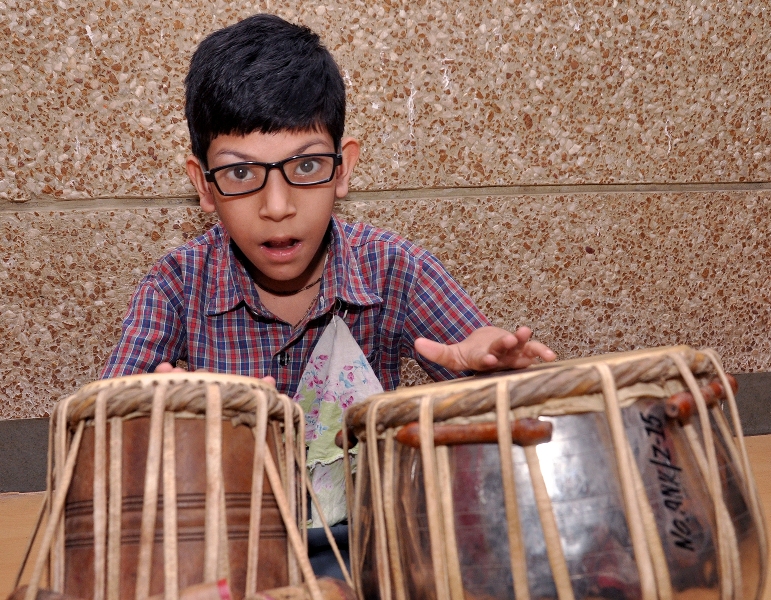In Ankur, we provide music therapy since 2003 our children like to visit the music therapy room and enjoy their sessions. After this much experience, we learn to know that Music therapy has been used to support emotional, cognitive, and social development in many populations. Music in interventions used with children mentally challenged children, and teens with ASD (Autism Spectrum Disorder) can improve social behaviors, increase focus and attention, increase communication attempts (vocalizations, verbalizations, gestures, and vocabulary) improve body awareness and coordination
Music therapy experiences can be adapted according to the capabilities and needs of the individual. Music therapy has also been used to help decrease maladaptive behaviors and reinforce positive behaviors. Studies have shown contingent music to be effective in reducing disruptive behaviors such as rumination and out-of-seat behaviors and in encouraging adaptive behaviors such as improving arithmetic performance
Background music has also been effective in ameliorating difficulties during therapeutic feeding Music therapy has been used with developmentally delayed persons of all ages from preschool to late adulthood. With young children, music therapy is often used to reinforce the child’s strengths and to improve areas that need development. During adolescence, music provides an outlet for self-expression, encourages self-awareness, fosters self-esteem, and provides opportunities to further develop social interaction skills. In adulthood, music therapy continues to provide opportunities for the development of new skills and the maintenance of previously acquired ones. Musical and instrumental considerations should reflect the child’s age, preferences, capabilities, and needs. we are providing Music therapy sessions are conducted individually, in small group settings, or in the classroom.
Dr. Bhavnaben Andharia
Music Therapist
Ph.D
Dr. Bhavnaben Andharia
Music Therapist
Ph.D

